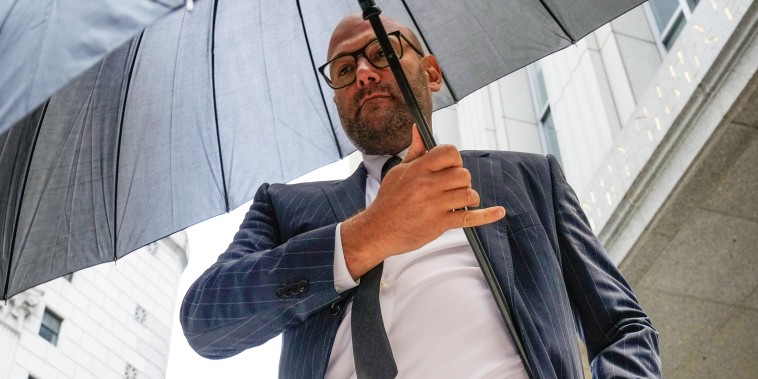
Shockwaves in the Stock Market: Two Admit to Insider Trading in Trump Media Merger Case
The recent revelation of two individuals pleading guilty to insider trading related to the Trump Media merger has rekindled concerns over the prevalence of illicit activities in the financial industry. This case underscores the importance of strict regulatory oversight and enforcement measures to maintain market integrity and protect investors.
Insider trading, the illegal practice of trading stocks based on non-public, material information, has long been a thorn in the side of regulators and law enforcement agencies. The case in question involved individuals who had access to confidential information about the impending merger between Trump Media and another company. Armed with this sensitive data, they made trades to profit from the forthcoming deal, disregarding the laws that prohibit such conduct.
The implications of insider trading extend far beyond the individuals involved in a particular case. It erodes trust in the financial markets, undermines the level playing field for investors, and jeopardizes the overall integrity of the securities industry. When insider trading goes unchecked, it can distort market prices, harm innocent investors, and erode confidence in the fairness of the system.
To combat insider trading effectively, regulatory authorities must be vigilant in monitoring trading activities, investigating suspicious transactions, and prosecuting those who engage in illegal conduct. The Securities and Exchange Commission (SEC) and other regulatory bodies play a crucial role in setting and enforcing rules that govern the securities markets. By conducting thorough investigations, collaborating with law enforcement agencies, and imposing stringent penalties on wrongdoers, regulators can deter future instances of insider trading.
Moreover, financial firms and corporations have a responsibility to implement robust internal controls and compliance programs to prevent and detect insider trading within their organizations. By promoting a culture of ethical behavior, transparency, and accountability, companies can reduce the risk of employees engaging in illicit activities that could harm both the firm’s reputation and the integrity of the markets.
Investors also play a vital role in the fight against insider trading by staying informed, reporting suspicious activities, and advocating for greater transparency and fairness in the financial industry. By demanding accountability from companies, supporting regulatory efforts to combat market abuse, and making sound investment decisions based on publicly available information, investors can help uphold the integrity of the capital markets.
In conclusion, the recent guilty pleas in the insider trading case related to the Trump Media merger serve as a stark reminder of the ongoing challenges posed by illicit activities in the financial sector. To preserve market integrity, protect investors, and uphold trust in the securities markets, regulators, companies, and investors must work together to combat insider trading effectively. By enforcing laws, implementing strong compliance measures, and fostering a culture of ethical behavior, we can strive towards a more transparent, fair, and accountable financial system.
